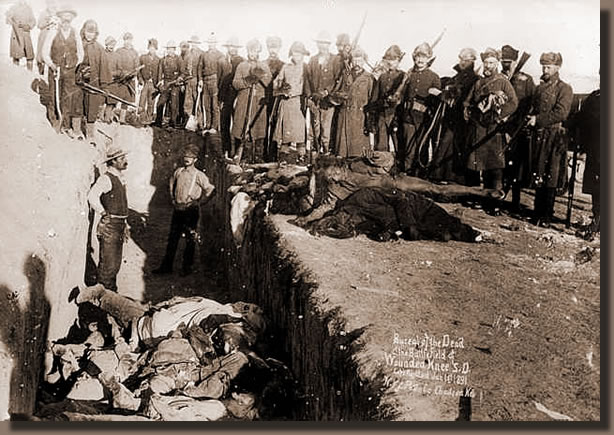[Cross-posted at Firedoglake.]
Scott McClellan, meet
Ron Ziegler. Or better yet: Bush’s White House press corps, meet
Nixon’s White House press corps.
Those of us alive and aware then remember Ron Ziegler well. Richard
Nixon’s press secretary, a onetime Disney World guide recruited out of
nowhere at age 29 to demonstrate Nixon’s contempt for the press, was the
prototype for the modern White House press secretary: a prevaricator,
evader, misleader, disinformer, and propagandist of the first order.
Rick Perlstein, in his superb new book
Nixonland, describes
Ziegler precisely, dancing around and stonewalling questions on
Watergate, as well as a multitude of other matters, from the killing of
student protesters at Kent State to the American bombing of civilian
targets in Vietnam. He sums it up on p. 728;
Ziegler was a new kind of flack — a career
flack, not a former reporter vaguely ashamed of quitting reporting.
Indeed, he held reporters in contempt. He pressed his advantages.
It kind of makes you wonder, in a way, at all the fuss over Scott
McClellan this week. Because McClellan, for the most part, has been cut
from the same cloth as a multitude of other White Press secretaries —
particularly the Republican variety — since Ziegler (including Scotty’s
immediate predecessor, Ari Fleischer). He was never a working journalist
and came up through the ranks of party politics. When he got up and
spoke for Bush, it was obvious that he lied. A lot.
In many ways, of course, knowing without any reservation that this
White House lies like it breathes — reflexively, constantly,
purposefully, even gleefully — is useful public knowledge. But you have
to shake your head a little at the members of the Beltway pundit class
who this week seemed most taken aback by the revelations of White House
mendacity.
After all, it was plain to everyone that when he was Bush’s press
secretary, Scott McClellan was doing what press secretaries since
Ziegler too often have done. He not only misled the press corps — and by
extension, the public — on such matters as those he admits in his
otherwise defensive book (
What Happened, as
the excerpts available make clear, is still a very friendly book to Bush): the
propaganda campaign advancing the war in Iraq, most notably, as well as those he doesn’t deny, such as
the leak of Valerie Plame’s CIA identity.
He also evaded, misled, and prevaricated about a lot of other matters
which seem to still escape the notice of much of the now-aghast press —
from
wiretapping American citizens to
the Katrina debacle to
Bush’s military records. And there’s still no one talking much about that.
Indeed, whenever any journalists did happen to stand up and do their
jobs by demanding truthful answers about these things — most notably,
perhaps,
Helen Thomas — they were given
the back-row treatment, while phonies posing as journalists like
Jeff Gannon got scooted up to the front and given the chance to ask all kinds of tough questions.
And the whole time, you heard hardly squeak from the rest of the White House press corps. As
Glenn Greenwald observes, that’s some liberal media, ain’t it?
All this stands in stark contrast to how the press corps responded to
Ron Ziegler. While many were as compliant as our modern-day Gannons,
many were not. Perlstein recalls [p. 729] how one of the lions of
journalism at the time — the legendary
Clark Mollenhoff — responded to Ziegler’s prevarications:
One of the most distinguished press
veterans, Clark Mollenhoff of the Des Moines Register, a bluff
Midwesterner who had given up a promising football career to be a
journalist, who had out of a deep-dyed sense of patriotic duty taken a
job in 1969 as the Nixon White House ombudsman and left within a year in
disgust, whom Jimmy Hoffa spat on as he was led off to prison, wasn’t
about to let MacGregor get away with it.
Earlier, Mollenhoff had
demanded of Ziegler where he thought the money for the Watergate
burglary had come from. Perhaps intimidated by the man who once, when
President Eisenhower told him to sit down at a press conference,
defiantly kept standing, Ziegler forgot to stonewall: "Why I don’t think
there was any question but that the money came from the committee."
Mollenhoff put that on the front page of the Register October
6. Ziegler promptly got his wits about hit and released a statement
accusing a towering figure in the pressroom of "misinterpretation."
The Bush press corps, in contrast, simply rolled over when Helen
Thomas and a handful of others have made any similar attempts at holding
the White House’s feet to the fire this decade.
Now, perhaps they’ve all just come to take it for granted that the
White House is going to lie, obfuscate, and mislead whenever the press
secretary opens his mouth, so what’s the point of making a big deal
about it now?
But as the historical example of Ron Ziegler reminds us, the very act
of the press corps demanding accountability of the White House is the
essence of its basic function in our democracy. Because even when they
lie and stonewall in the face of those demands, that becomes plain for
the public to see.
That has been sadly, horribly, indeed tragically lacking in the Bush
years. And that’s not Scott McClellan’s fault. It’s the press’s.
 [Cross-posted at Firedoglake.]
[Cross-posted at Firedoglake.]




















